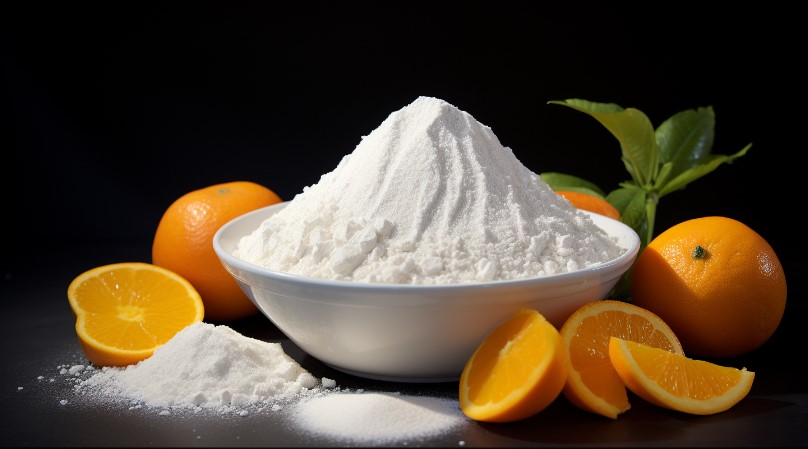“You” have taken vitamin C, right?

As we all know, the human body needs a large amount of vitamin C as an energy source. Many people don’t understand why. Today, I will tell you about the “world” of vitamin C.
Which special groups of people need to supplement vitamin C?
People who have insufficient vegetable and fruit intake for a long time
Long-term lack of vitamin C will cause symptoms such as skin spot bleeding, gum inflammation and bleeding, and osteoporosis. Vitamin C supplements can be taken appropriately.
Pregnant women, nursing mothers and growing children
The demand for vitamin C in this group of people is higher than that of normal adults. Vitamin C can be supplemented appropriately, but it is still recommended to supplement through natural food.
patients with some diseases
For example, long-term dialysis for gastrointestinal diseases and chronic kidney disease may lead to vitamin C deficiency, which can be supplemented according to specific circumstances.
smoker
Compared with non-smokers, smokers need more vitamin C, which may be related to the fact that smoking produces oxidative free radicals and thus consumes more antioxidant substances.
People who have been exposed to adverse environments for a long time
For example, people who work or live under high temperature, cold and hypoxic conditions; people who are often exposed to toxic jobs such as lead, benzene and mercury.
What symptoms do ordinary people have and do they need supplements?
What symptoms we encounter in daily life are caused by lack of vitamin C? Vitamin C supplementation has always been an enduring topic. Usually when we encounter some physical discomfort, we will more or less think about whether we need to supplement vitamin C?
Prevent scurvy
Vitamin C can effectively promote the repair and regeneration of damaged gum tissue while protecting the ulcer surface. Therefore, when symptoms of gum bleeding and mucosal bleeding occur, you can take vitamin C or eat more fresh vegetables and fruits to help relieve the symptoms.
Decrease in immunity
Vitamin C can not only promote the formation of antibodies, but high concentrations of vitamin C can also help reduce cystine in food proteins to cysteine, synthesize antibodies, and improve human immunity.
Allergy relief
Vitamin C has a detoxifying effect. Taking some vitamin C orally can play an auxiliary treatment role when allergic. However, if you encounter more serious allergic skin diseases, such as eczema, urticaria, etc., you still need to seek medical treatment in time.
Cholesterol metabolism
Cholesterol not only serves as an important component of cell membranes and plasma lipoproteins, but is also the precursor of many important substances, such as bile acids, adrenocortical hormones, vitamin D, sex hormones, etc. In the process of cholesterol metabolism, vitamin C is a coenzyme for the hydroxylation of the cyclic part of cholesterol, and the side chain is decomposed into bile acids. Therefore, vitamin C can regulate cholesterol metabolism and synthesis in both directions.
whitening skin care
Vitamin C has an antioxidant effect and can inhibit the formation of pigment spots and prevent the formation of melanin. Therefore, if you have spots on your face or your skin becomes dark, you can appropriately supplement vitamin C to help improve it.
Which daily foods have the highest VC content?
The main food sources of vitamin C are vegetables and fruits, such as greens, leeks, cabbage, spinach, bell peppers and other dark vegetables and cauliflower, as well as citrus, red fruits, grapefruit, fresh dates, tangerines, guavas, kiwis, strawberries, etc. Fruits contain higher amounts of vitamin C. Wild amaranth, alfalfa, prickly pear, sea buckthorn, kiwi fruit, etc. are particularly rich in content.
The main food sources of vitamin C are vegetables and fruits, such as greens, leeks, cabbage, spinach, bell peppers and other dark vegetables and cauliflower, as well as citrus, red fruits, grapefruit, fresh dates, tangerines, guavas, kiwis, strawberries, etc. Fruits contain higher amounts of vitamin C. Wild amaranth, alfalfa, prickly pear, sea buckthorn, kiwi fruit, etc. are particularly rich in content.
Vitamin c supplements
Among the vitamin family, vitamin C is the most well-known one. It is involved in amino acid metabolism, neurotransmitter synthesis, collagen and tissue intercellular matrix synthesis, can reduce capillary permeability, and promote iron absorption. , improve cholesterol metabolism, antihistamine, enhance immunity and other effects.
Vitamin C is a monoclinic crystal that is usually in the form of flakes or sometimes needles. It participates in the complex metabolic processes of the body and can promote growth and enhance resistance to disease. It can be used as a nutritional supplement, antioxidant, or as wheat flour. Improver. However, excessive supplementation of vitamin C is not beneficial to health, but harmful, so it needs to be used rationally. Vitamin C is used as an analytical reagent in the laboratory, such as reducing agent, masking agent, etc.
Vitamin C has a wide range of effects, but there is still no scientific basis for whether oral vitamin C can prevent and treat colds. Vitamin C should not be consumed excessively. The human body can only absorb up to 200mg of vitamin C a day. Excessive consumption may cause gastrointestinal discomfort symptoms such as nausea, vomiting, abdominal pain and diarrhea, abnormal gastric acid secretion, and gastric reflux. It should not be eaten on an empty stomach, otherwise it may cause irritation to the gastrointestinal tract. If taken after a meal, the absorption rate will be 20% higher than on an empty stomach.
Therefore, how to take vitamin C must be based on your own symptoms and cannot be taken indiscriminately. The existence of nutritional supplements is certainly convenient and quick, but supplementing with fresh fruits and vegetables is also an “excellent” option.
() ()